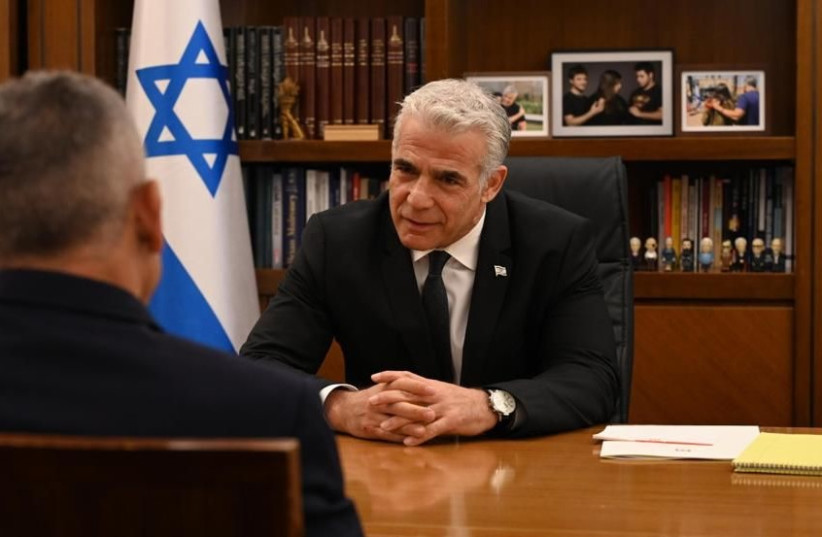Israel may share aspects of its nuclear technology and knowledge with countries that are part of the Abraham Accords, Israel Atomic Energy Commission Director-General Moshe Edri said Wednesday.
“We are hopeful that the new spirit in our region, as demonstrated in the Abraham Accords, will mark a path forward for meaningful direct dialogue within our region, including in the nuclear fora,” he said in a speech to the International Atomic Energy Agency in Vienna. “Israel’s state-of-the-art technology provides us with significant levels of knowledge and capabilities, which we are ready to share with others, of course, under the IAEA umbrella.”
“Israel’s state-of-the-art technology, provides us with significant levels of knowledge and capabilities, which we are ready to share with others, of course under the IAEA umbrella.”
Moshe Edri
Regarding Iran, Edri said: “One country is the leading factor in the instability of the region. It is now clear that Iran conducted a military nuclear program, gaining technology and knowledge aimed to produce elements for a nuclear-weapon device. These activities took place in many undeclared sites, using various nuclear materials.”
Further, he said, “in this regard, the Iranian nuclear-weapon program has been under the investigation of the agency for many years. Iran has continuously failed to provide credible explanations, or clarifications, regarding the nature of these past activities and continues to deceive the agency and the international community concerning its clandestine nuclear activities.”

What else did Edri say?
Next, Edri referenced the June Board of Governors resolution “condemning Iran’s lack of cooperation with the agency [and] growing international concerns regarding Iran’s ill conduct.”
In parallel, he warned that “Iran continues to develop, test and deploy long-range ballistic missiles, in direct violation of UN Security Council resolutions, and supports terrorist organizations throughout the Middle East. Iran, obtaining nuclear weapons, is not an option that Israel, nor the world, can tolerate.”
Moreover, Edri tied the discussion of certain Iranian threats to issues of nuclear safety that have grabbed global attention in Ukraine following Russia’s invasion.
“The discussion on nuclear security is especially important today in light of recent events in Ukraine,” he said. “Threats to nuclear security and safety have no boundaries.”
“We must not ignore the repeated and explicit threats to attack Israel’s nuclear facilities by Iran and its proxies,” he added. “Last year, Israel’s nuclear research centers were once again directly targeted.”
According to Edri, “these threats require Israel to take action and continue to protect its nuclear facilities, which are upgraded and reinforced in line with IAEA Safety Standards in order to deal with any attack.”
Israel’s main nuclear facility is in Dimona. According to foreign sources, the Jewish state may have anywhere from 80 to a few hundred nuclear weapons.
While expressing hope for the future, Edri said: “Unfortunately, the Arab Group continues with its endless efforts to abuse this professional forum for one reason only – to single out Israel.”
“The agenda item entitled ‘Israeli Nuclear Capabilities’ – placed on the agenda year after year – is politically driven and contradicts the IAEA Statute and mandate,” he said. “We strongly object to its inclusion on the agenda.”
Generally, Israel’s position is one of nuclear ambiguity, saying it will not be the first to introduce nuclear weapons into the Middle East, while media reports regarding its arsenal are used to deter adversaries from undertaking attacks beyond a certain threshold against Israel.
Edri took over from Ze’ev Snir last month for a seven-year term after serving 31 years in the IDF and various other defense positions.
